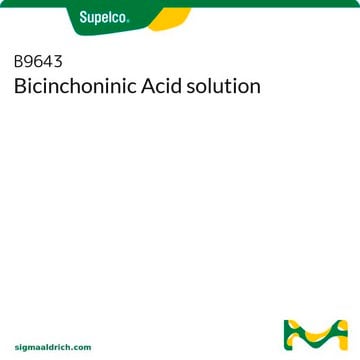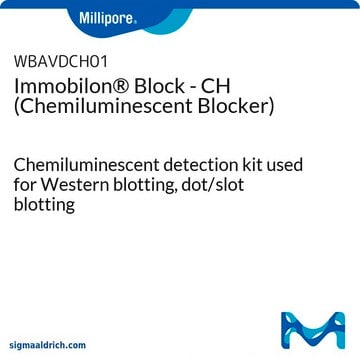57697
Advanced Protein Assay
1× concentrate
Synonym(s):
Protein Assay, advanced
Sign Into View Organizational & Contract Pricing
All Photos(1)
About This Item
UNSPSC Code:
12171500
NACRES:
NA.51
Recommended Products
storage temp.
2-8°C
General description
The Advanced Protein Assay Reagent combines the best properties of low protein-to-protein variance and a wide protein concentration, a sensitive detection limit and a unique red-to-blue color change.
Signal Word
Warning
Hazard Statements
Precautionary Statements
Hazard Classifications
Acute Tox. 4 Oral - Met. Corr. 1 - STOT SE 2
Target Organs
Eyes,Central nervous system
Storage Class Code
8A - Combustible corrosive hazardous materials
WGK
WGK 2
Flash Point(F)
Not applicable
Flash Point(C)
Not applicable
Personal Protective Equipment
dust mask type N95 (US), Eyeshields, Gloves
Certificates of Analysis (COA)
Search for Certificates of Analysis (COA) by entering the products Lot/Batch Number. Lot and Batch Numbers can be found on a product’s label following the words ‘Lot’ or ‘Batch’.
Already Own This Product?
Find documentation for the products that you have recently purchased in the Document Library.
Mathieu Panel et al.
The Journal of pharmacology and experimental therapeutics, 376(3), 348-357 (2020-12-12)
Mitochondrial permeability transition pore (mPTP) opening is a key event in cell death during myocardial ischemia reperfusion. Inhibition of its modulator cyclophilin D (CypD) by cyclosporine A (CsA) reduces ischemia-reperfusion injury. The use of cyclosporine A in this indication is
Matthias Kohlhauer et al.
Shock (Augusta, Ga.), 56(5), 857-864 (2021-05-13)
Mitochondria is often considered as the common nexus of cardiac and cerebral dysfunction after cardiac arrest. Here, our goal was to determine whether the time course of cardiac and cerebral mitochondrial dysfunction is similar after shockable versus non-shockable cardiac arrest
Romain Long et al.
Biochimica et biophysica acta, 1837(1), 201-209 (2013-10-29)
Carbon monoxide is continuously produced in small quantities in tissues and is an important signaling mediator in mammalian cells. We previously demonstrated that CO delivered to isolated rat heart mitochondria using a water-soluble CO-releasing molecule (CORM-3) is able to uncouple
Stéphanie Paradis et al.
Cardiovascular research, 98(3), 420-427 (2013-04-05)
The translocator protein (TSPO) is located on the outer mitochondrial membrane where it is responsible for the uptake of cholesterol into mitochondria of steroidogenic organs. TSPO is also present in the heart where its role remains uncertain. We recently showed
Mathieu Panel et al.
Scientific reports, 7(1), 4283-4283 (2017-06-29)
Opening of the mitochondrial permeability transition pore (mPTP) plays a major role in cell death during cardiac ischaemia-reperfusion. Adult isolated rodent cardiomyocytes are valuable cells to study the effect of drugs targeting mPTP. This study investigated whether the use of
Our team of scientists has experience in all areas of research including Life Science, Material Science, Chemical Synthesis, Chromatography, Analytical and many others.
Contact Technical Service










